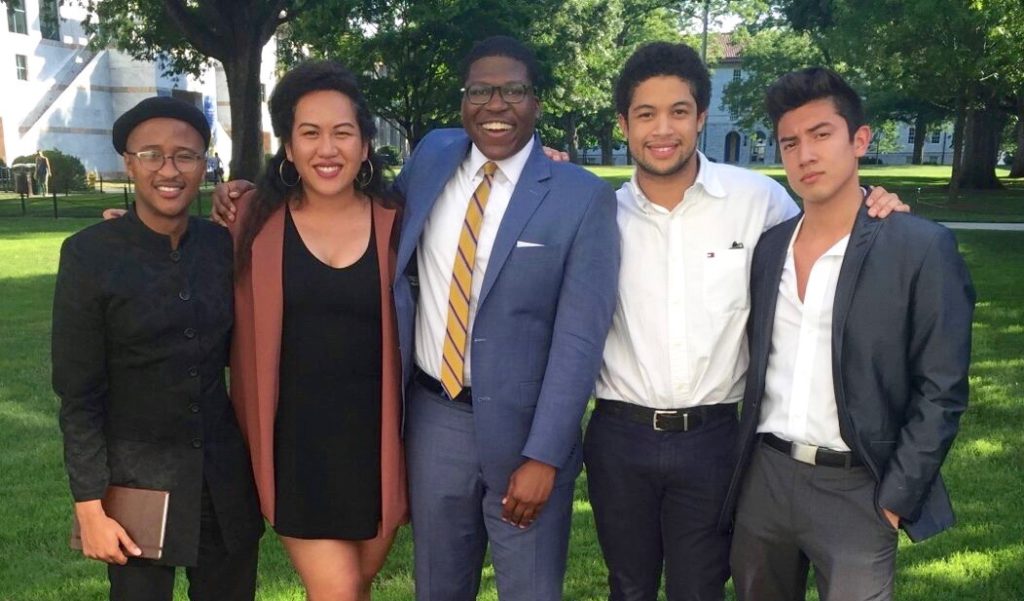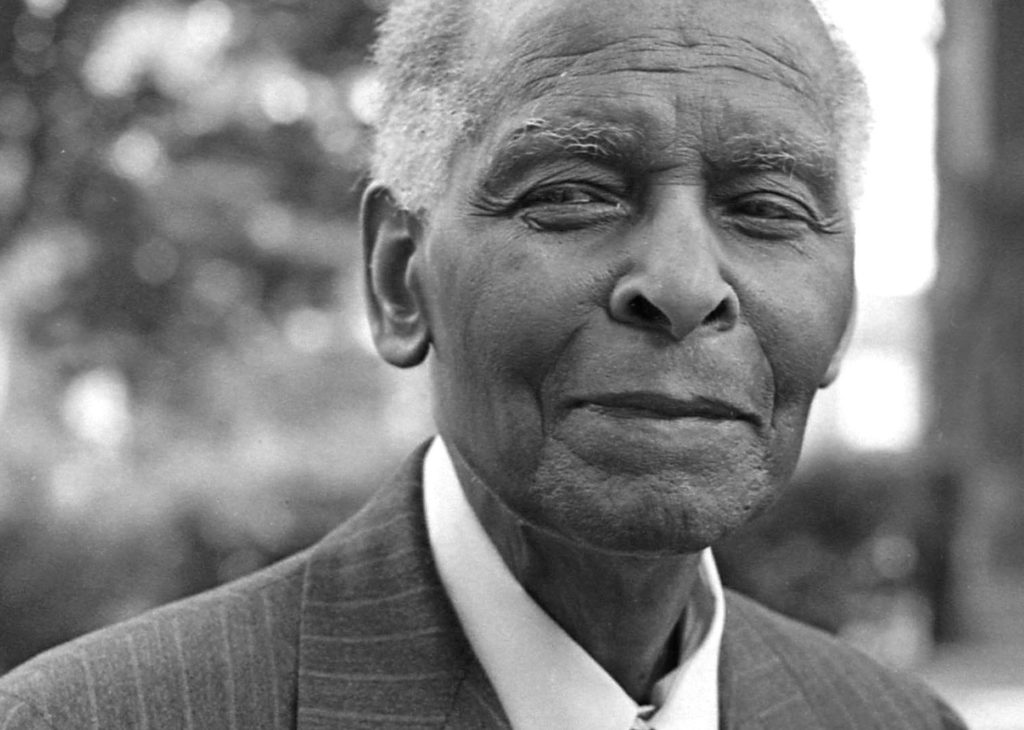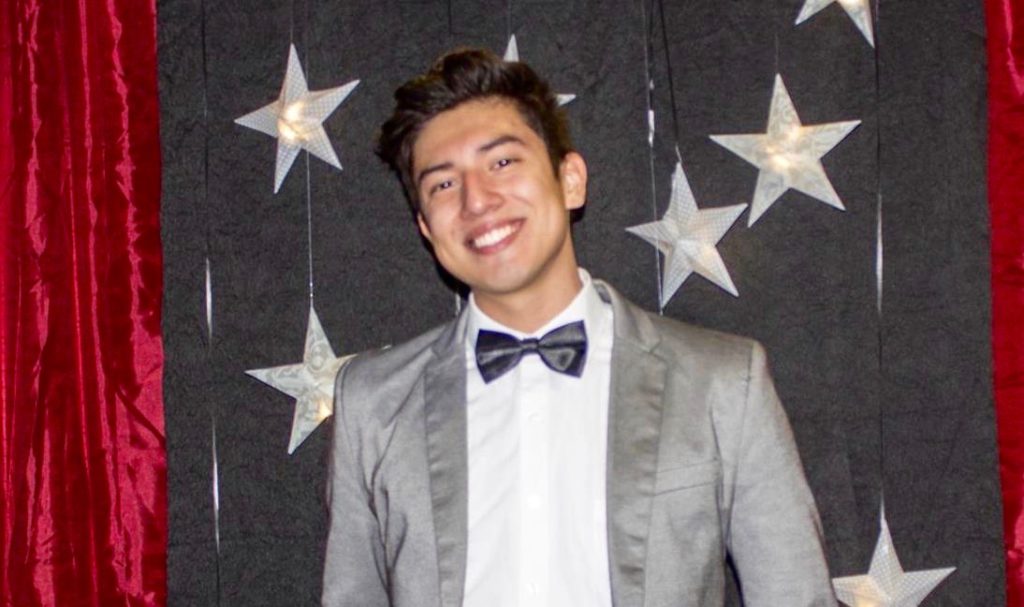The Mellon Mays Undergraduate Fellowship (MMUF) is designed for students (typically sophomores) who have excelled academically and aim to pursue a doctoral degree in the humanities, social sciences or physical sciences. The program is coordinated on each of its member campuses by faculty members and academic administrators who select their institution’s undergraduate fellows. MMUF offers many forms of support, including regular, structured programming; faculty mentoring; term-time stipends for research activities; support for summer research; and repayment of undergraduate loans up to $10,000.
To learn more about the benefits of this unique opportunity, we interviewed Jonathan Peraza, a current Mellon Mays Undergraduate Fellow and junior at Emory University.
1. How did you discover the Mellon Mays Undergraduate Fellowship and what inspired you to apply?
All students are welcome to apply for the Mellon Mays Undergraduate Fellowship (MMUF), but the program particularly encourages applications from Black, Latinx, Native American and other underrepresented groups in the professoriate, particularly if these students want to do research and teach about topics relating to race and inequality. MMUF has always been a program of prestige at my university. Some of the most brilliant minds and active students on campus have been “Mellons.” Seeing Mellons who were shakers and movers on campus – students who are not only scholars but also activists – gave me the perception that MMUF was an ideal program for me; however, I was not completely sold because I was unsure if I wanted to pursue academia.
For most of my life, I have grown up in high-poverty and predominantly Latinx and Black communities. In these communities, I saw the ways that poverty, race and immigration status shaped my life and the lives of people around me. I know what it feels like to receive a low-quality education compared to wealthier, white counterparts. I know what it feels like to starve and see the ways in which poverty destroyed families. Committed to one day going back and serving my communities, I began to think about the work I could do as a sociologist supported by MMUF.
When I sat down with one of the MMUF coordinators, Dr. Carol Anderson, and expressed my uncertainty to her, she completely changed my mind. She felt that I was destined to be an academic. She understood the way my mind worked and the kind of future I envisioned for myself as a scholar-activist, the kind of student that MMUF aspired to prepare for the professoriate. Dr. Anderson helped me realize that as a sociologist I could affect social change. I was accepted to the fellowship in Spring 2016 and I began to imagine new possibilities for myself and my community.
I aspire to do research and teach about race and inequality to develop well-informed and passionate generations of college students. I want to use my research to influence education reform and to end to anti-immigrant policies, among other discriminatory policies. More than anything, I believe in closing the gap between academia and the public. One of my aspirations is to turn public schools and universities into hubs for community engagement and community building. MMUF will equip me with the tools and support I will need to do this kind of work. Thanks to the support of Dr. Anderson, Dr. Dianne Stewart (another MMUF coordinator), and other Mellon Mays Undergraduate Fellows, I was inspired to submit my application and begin my journey into academia.

2. How has the fellowship supported your goals of pursuing a doctoral degree in the future?
After the competitive process of applying and being selected as a Mellon Mays Undergraduate Fellow, I attended a Summer Institute with other Fellows in my region. At this Institute, Fellows get to know each other and build a support network of other aspiring scholars. The Institute provides the opportunity to meet the Fellows in your cohort and learn how to navigate academia as a person of color. The Institute is meant to expose us to an environment similar to the graduate school experience through the daily seminars and assignments. This month-long Institute gives us the training to learn about the MMUF, about each other, and about our research interests, which we develop into a two-year research project as undergraduates.
After the Institute, our university’s MMUF coordinators and MMUF graduate assistants prepare a year-long curriculum for Fellows. Through mandatory seminars and assignments, Fellows continue to develop skills as future graduate students, professors, and researchers. We also continue to polish our research project in order to be able to begin our independent and original research under the supervision of a faculty mentor. Therefore, the MMUF program provides both academic and professional development.
Additionally, a stipend of $1,800 per semester as well as research funding for the summer provides financial support as Fellows conduct their research, which further reflects MMUF’s intention to prepare Fellows for graduate study. This funding can be used to purchase supplies necessary for research (e.g., voice recorders or flight tickets to research sites) or to supplement income from a job so that research can be conducted. MMUF also provides funds to apply to graduate school and take GRE prep courses.
MMUF is also invested in turning Fellows into global scholars. One opportunity available through MMUF is a two-week program at the University of Cape Town in South Africa, where U.S. Fellows can engage with MMUF Fellows from South Africa. I was selected for this opportunity and will be traveling outside of the United States for the first time. Fellows also have opportunities to attend research programs and other MMUF-affiliated programs around the country.

3. What application tips would you give to aspiring fellows?
The application process requires: 1) one faculty mentor to submit their recommendation and agreement to be an applicant’s faculty mentor, 2) a second recommendation from a professor, and 3) a student application, which includes a personal essay.
In the application essay as well as in the interview, I think it is important to weave together a personal narrative of your motives for wanting to become an academic and diversifying academia. If a Fellow has previous research experience or leadership in certain initiatives that address racial and social justice, these are indicators for a prospective Fellow’s commitment to scholar-activism.
For my essay and interview, I sought the help of previous Mellons at my university as well as professors invested in helping me become a Mellon Mays Undergraduate Fellow. These Mellons and professors read my essays and gave me feedback. They prepared me for my interview by providing me mock interviews. For the interview, be sure to be prepared to address any potential “weaknesses” in the application, such as a declining GPA from one semester to another. The interviewers will ask interviewees to explain certain discrepancies or noticeable changes in your academic record.
Jonathan Peraza is a junior at Emory University majoring in Sociology and Ethnic Studies. He is the first in his family to go to college, and one of the first Central Americans and Latinos from his high school to go to Emory University. With support from the Mellon Mays Undergraduate Fellowship, he is an aspiring academic dedicated to studying the complexities of race/ethnicity, racism, migration, gender/sexuality, and colonialism.
© Victoria Johnson 2016, all rights reserved.
